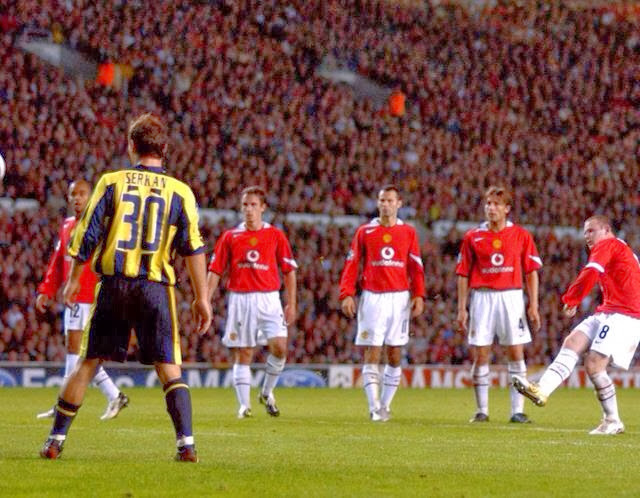Opinions, eh?! *applies comedy slap to thigh* They're everywhere. Everyone's got them. In fact, you can barely move round here for opinions these days. Just when you think you've got away from the buggers, another one pops up and stuffs itself down your throat.
Take Ryan Giggs, for example. Last Thursday started out as a simple, heartfelt tribute to a man who has contributed more than most to the two and a bit decades since the birth of Premier League football, on his 40th birthday.
There were photos, YouTube compilations, quotes, tributes, reminiscences, and lots and lots...and lots and lots...and lots and lots...and lots (ad Infinitum) of statistics, all lovingly produced by those that wished to show their appreciation for Ryan Giggs.
Now, for Manchester United supporters, this was fine. We could, and do, enjoy revelling in hour upon hour of a particular individual's finest and most memorable moments, happily re-living their careers in a cocoon of nostalgia, blissfully unaware of the outside world.
Yet, these days, it is dangerous to forget about the outside world, for not a moment goes by that they're not watching, like hungry tigers, poised to pounce upon their prey and poop the party in midflow.
And so it was on Thursday, as all the millions of non-United fans grew tired of our eulogising and embarked on a cruel and savage hate campaign whose sole purpose was to besmirch the reputation of one of our greatest players.
The brutes took to their task with great relish, digging up long-forgotten dirt from the birthday boy's distant past and slinging it into our aghast faces.
Fortunately, we northerners are made of damned stern stuff. We're used to biting winds and unforgiving frosts. Our days begin with bare-footed trudges to our places of work, over perilous precipices and through rocky ravines. We can skin a rabbit with our feet, blindfolded, from the moment we exit our mother's womb. So a few nasty words, however spitefully slung, fall woefully short of disturbing our equilibrium.
Nevertheless, 'Lay off Giggsy!' we beseeched. 'What's he ever done to you?' we cried, the scalding lava of indignation coursing through our veins.
For, whatever Ryan Giggs' off-field misdemeanours, he is, to many of us, a hero.
He is not, never has been, and never will be, a role model, however vehemently some would argue otherwise. He's just a man. A human being. Like all the rest of us. Only he has been blessed with a gift galaxies beyond the reach of we that have watched in wonder since his emergence, over two decades ago, when he burst onto the scene and made Lee Sharpe, who had seemed a revelation up to that point, look like a club-footed buffoon that wouldn't know a football if it slept with his brother's wife.
It's not that we don't understand people's objections to our putting Giggs on a pedestal. After all, we too are human; we too recoiled upon reading about the wandering mojo of the modern age's greatest yogi. It's just that Ryan Giggs has been a such a big part of our lives for such a long time, bestowed so many memorable moments on us, and then shared in so much of our profound joy, that we are prepared to defend him to the bitter end and overlook his indiscretions, as we would a best friend, brother or son.
Many outsiders no doubt accuse us of burying our heads in the sand, of a shameless propensity to engage in wanton self-denial. Well, so what? Who can blame us for wishing to remember Giggs solely as the magnificent footballer he has been, rather than the...I forget what dastardly deeds he's accused of.
For many United fans, there have been few more exhilarating sights than Ryan Giggs in full flow. Our eyes still glaze over when we think of him in his pomp, gliding over the turf with the speed and grace of a champion ice skater, fleet of foot and floppy of hair, the ball an extension of himself, leaving opposition players spinning in dazzled confusion in his wake.
It's not that we excuse Ryan Giggs for his mistakes. It's simply that, for us, the good that he has done outweighs any bad so heavily, as to make it barely a footnote on his glittering Wikipedia page.











